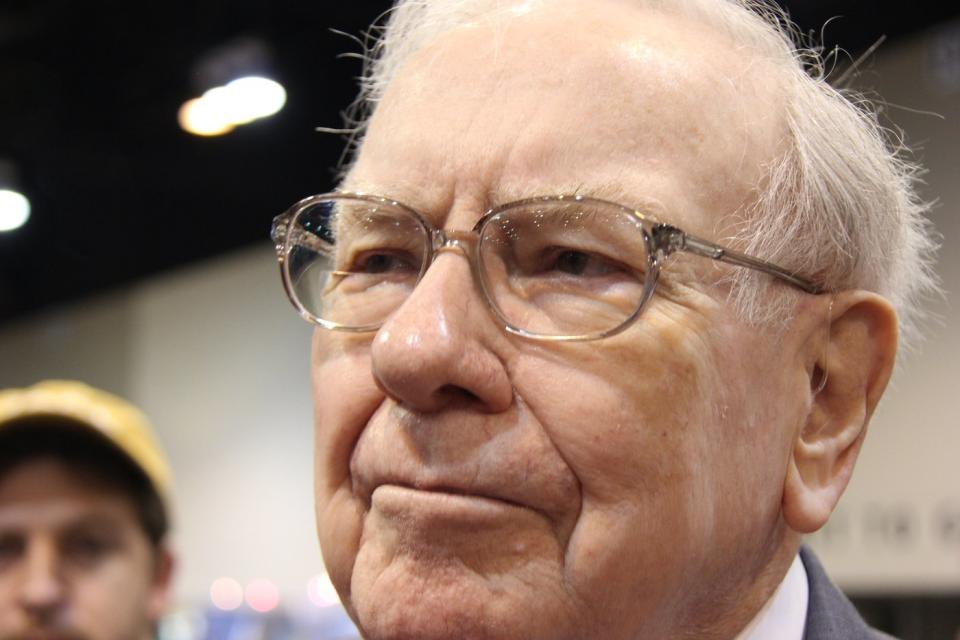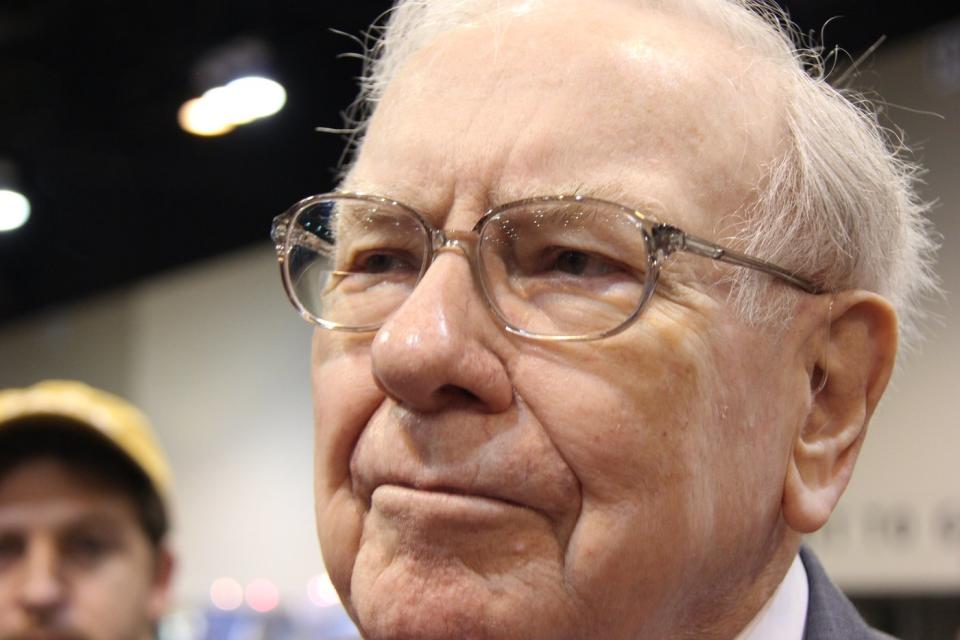For those wondering why Berkshire Hathaway (NYSE: BRK.A)(NYSE: BRK.B) CEO Warren Buffett garners so much attention on Wall Street, look no further than his track record. Since ascending to the CEO chair in 1965, he’s overseen a greater than 5,230,000% aggregate return in his company’s Class A shares (BRK.A) and nearly doubled up the benchmark S&P 500‘s annualized total return, including dividends.
Many lengthy books have been written highlighting the formula the rightly named “Oracle of Omaha” has used to deliver outsized gains for his shareholders. This includes buying stakes in businesses with well-defined moats or competitive advantages and hanging onto these positions for multiple years, if not decades.
But what often gets overlooked is Warren Buffett’s patience and the realization that he doesn’t have to swing at every pitch.

Warren Buffett’s warning to Wall Street is subtle no longer
In his annual letter to shareholders, as well as when answering questions from investors and the media during Berkshire Hathaway’s annual shareholder meeting, the Oracle of Omaha has been upfront that he’d never bet against America.
Despite inevitable rough patches, Buffett understands that the U.S. economy spends a disproportionate amount of time expanding, relative to contracting. Rather than try to guess when these downturns will occur, he plays a simple numbers game where the odds are very much in favor of patient investors.
However, betting on the long-term success of the American economy doesn’t mean it’s always a good time to put your money to work in the stock market. Although Buffett and his investment team aren’t short-sellers and won’t purchase put options to bet on stock market downside, they will holster Berkshire Hathaway’s cash as a way to signal that value is getting harder to find on Wall Street.
Generally, having a healthy cash position is something most businesses envy. A flexible balance sheet affords the ability for companies to safely navigate whatever curveballs are thrown their way.
But this isn’t the case with Berkshire Hathaway. Though Buffett’s company does own around five dozen predominantly cyclical businesses that benefit from long-winded economic expansions, he and his top investing aides, Ted Weschler and Todd Combs, also oversee a 44-stock, $304 billion portfolio. This is where most investors focus their attention.
While it’s pretty much a given that Berkshire Hathaway will always have at least $30 billion in cash, cash equivalents, and U.S. Treasuries on its balance sheet — this is the minimum threshold needed for Buffett to undertake share repurchases — the expectation is that most of this excess cash will be put to work in the stock market. However, Berkshire’s cash pile has grown in each of the last eight quarters, and has been north of $100 billion since Sept. 30, 2017!
A modest increase in Berkshire’s cash from one quarter to the next has served as something of a silent warning to Wall Street that little, if anything, is piquing the interest of Buffett and his team. But an all-time record $276.9 billion in cash, cash equivalents, and U.S. Treasuries, as of the end of June 2024, serves as nothing short of a deafening cry that the Oracle of Omaha wants little to do with stocks at their current valuation.

Berkshire Hathaway’s brightest investment minds have been consistent net-sellers of equities
In addition to this rapidly growing cash position spelling out for Wall Street that stocks are pricey, Berkshire Hathaway’s quarterly cash flow statements show that Buffett and his crew have been persistent net-sellers of equities for seven consecutive quarters.
Altogether, Buffett and his top investment aides have overseen $131.63 billion more in equity security sales than purchases since Oct. 1, 2022. With $3.82 billion in added selling of Bank of America (NYSE: BAC) stock from July 17 through Aug. 1, it looks as if this quarterly streak of net-equity sales will continue.
The reason Buffett, Combs, and Weschler can’t find solid value is because stocks are historically expensive.
Though the price-to-earnings (P/E) ratio is typically what investors rely on to assess “value,” the S&P 500’s Shiller P/E ratio, which is also known as the cyclically adjusted price-to-earnings ratio (CAPE ratio), allows for a broader assessment. The Shiller P/E examines 10 years of inflation-adjusted earnings, which helps to smooth out one-off events that could otherwise impair traditional valuation models only looking at 12 months’ worth of earnings.
As of the closing bell on Aug. 9, the Shiller P/E ratio was nearly 34.5, or roughly double its average reading when back-tested to January 1871.
What’s far more concerning is how the major stock indexes have reacted following prior instances of the Shiller P/E surpassing 30 during a bull market rally. Including the present, this has only happened six times in over 150 years, and the five previous occurrences were all, eventually, followed by drops ranging from 20% to 89% in the S&P 500, Dow Jones Industrial Average, and Nasdaq Composite.
Buffett has sufficient ammo, but won’t fire until a large-scale opportunity presents itself
To be fair, this isn’t Warren Buffett’s first rodeo with a potentially overvalued stock market. He’s seen his fair share of emotion-driven moves for Wall Street’s major stock indexes since becoming Berkshire Hathaway’s CEO.
But one of the Oracle of Omaha’s greatest attributes has been his patience.
At times, it can be frustrating for investors to watch Berkshire’s smartest investment minds sit idly by while euphoria for Wall Street’s hottest trends, such as artificial intelligence (AI) and stock splits, lifts all three major indexes to record levels. Yet if you take a step back and examine how Buffett has used moments of Wall Street fear to his advantage, you’d see that it’s played a key role in the company’s outsized long-term gains.
One of the more recent examples of Warren Buffett being able to take advantage of a large-scale opportunity occurred shortly after the Great Recession.
In 2011, Buffett purchased $5 billion worth of Bank of America preferred stock to help one of the nation’s largest banks shore up its balance sheet. Buffett and his crew eventually exercised warrants to purchase 700 million shares of Bank of America in the summer of 2017 at $7.14 per share. BofA closed last week at more than $38 per share.
Buffett, Combs and Weschler have more than enough ammo at their disposal to “attack” with confidence when the right opportunity presents itself. But at the same time, Buffett is more than willing to wait for stock valuations to come back toward historic norms before making this leap. This is a recipe that’s been working for more than a half-century, and there’s simply no reason for the Oracle of Omaha, or his investment team, to change what works.
Should you invest $1,000 in Berkshire Hathaway right now?
Before you buy stock in Berkshire Hathaway, consider this:
The Motley Fool Stock Advisor analyst team just identified what they believe are the 10 best stocks for investors to buy now… and Berkshire Hathaway wasn’t one of them. The 10 stocks that made the cut could produce monster returns in the coming years.
Consider when Nvidia made this list on April 15, 2005… if you invested $1,000 at the time of our recommendation, you’d have $723,545!*
Stock Advisor provides investors with an easy-to-follow blueprint for success, including guidance on building a portfolio, regular updates from analysts, and two new stock picks each month. The Stock Advisor service has more than quadrupled the return of S&P 500 since 2002*.
*Stock Advisor returns as of August 12, 2024
Bank of America is an advertising partner of The Ascent, a Motley Fool company. Sean Williams has positions in Bank of America. The Motley Fool has positions in and recommends Bank of America and Berkshire Hathaway. The Motley Fool has a disclosure policy.
Warren Buffett’s Once-Silent Warning to Wall Street Has Turned Into a $277 Billion Deafening Roar was originally published by The Motley Fool
EMEA Tribune is not involved in this news article, it is taken from our partners and or from the News Agencies. Copyright and Credit go to the News Agencies, email news@emeatribune.com Follow our WhatsApp verified Channel






